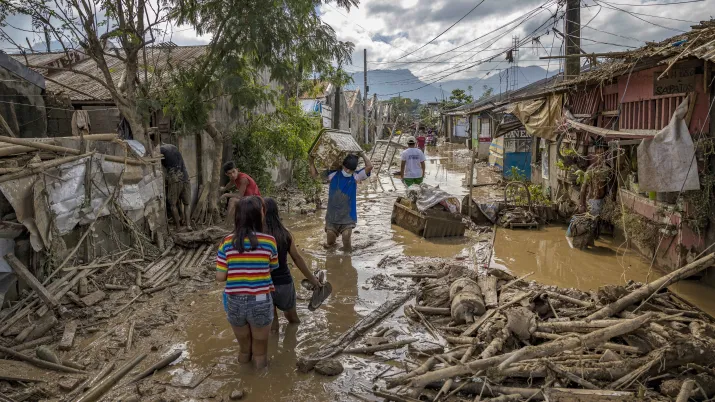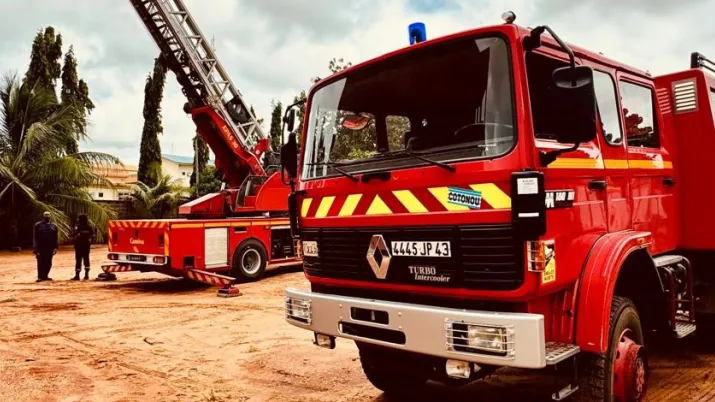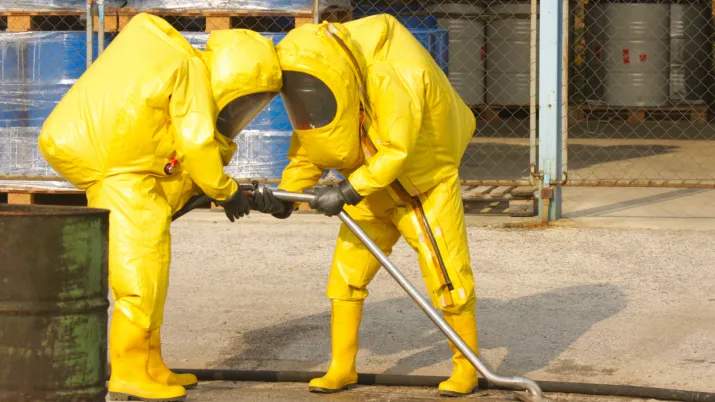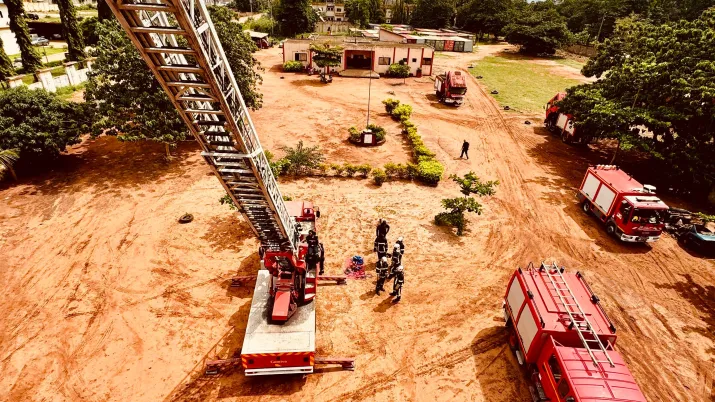Share the page
Prevent, reduce, adapt: Investing in resilience
Published on
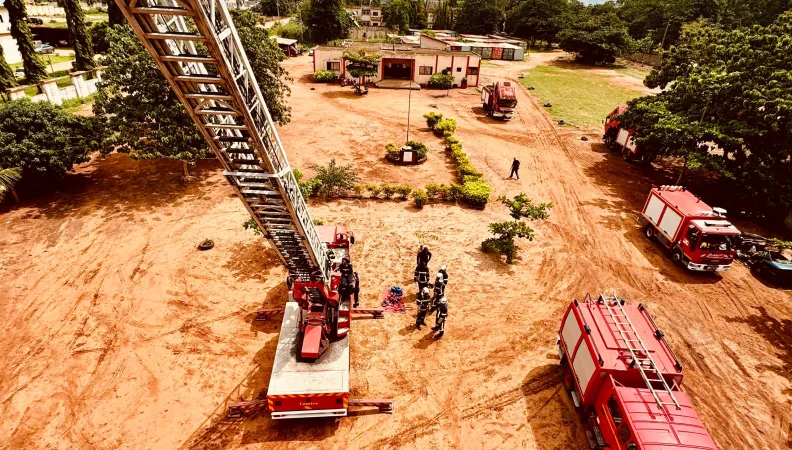
With the increased frequency and intensity of disasters, human, economic and environmental losses are being compounded all around the world. These crises serve as a reminder that anticipating always costs less than repairing. Yet prevention remains largely under-funded despite its proven effectiveness. In this respect, the approach for the action of Expertise France, a subsidiary of AFD Group, is based on an understanding of the risks and the resilience of regions, systems and communities.
The cost of inaction
Disasters result in direct costs estimated at $202 billion annually worldwide, according to the UNDRR Global Assessment Report 2025. However, the United Nations estimates that the true cost of disasters can be up to ten times higher than standard assessments when the cascading effects — economic disruptions, environmental impacts, disruption to supply chains and health crises – are taken into account.
Ignoring the risks means investing at a loss. Building infrastructure in flood-prone areas, subsidising activities with high levels of greenhouse gas emissions and disregarding urban planning are tantamount to preparing the disasters of tomorrow. This is what is referred to as maladaptation.
Each wrong decision has a long-term cost: a disaster affects all the Sustainable Development Goals, as it has a simultaneous impact on the human, economic and environmental dimensions of development. It can thereby undo years of progress by aggravating poverty, destroying essential infrastructure, disrupting ecosystems and weakening institutions.
According to the World Bank, in some economies, disasters result in annual losses equivalent to 2% of GDP, especially in the most vulnerable countries. Hence the importance of investing in prevention: appropriate construction standards, early warning systems, evacuation plans and awareness-raising programmes considerably reduce future losses. In other words, €1 invested in prevention and preparedness for natural risks can generate between €3 and €5 in avoided costs, meaning that prevention is both a humanitarian and economic priority. Yet only 2% of Official Development Assistance worldwide between 2010 and 2019 was devoted to disaster risk prevention and reduction. It is an alarming imbalance in view of the scale of the challenges.
Moving from reaction to anticipation
For Expertise France, resilience is first and foremost built on the ground, with and for the most exposed and vulnerable communities. It protects lives and development gains, safeguards essential infrastructure, supports institutional stability and strengthens trust between citizens and institutions.
Economists now use the term “resilience dividends” to describe the multiple benefits for societies able to anticipate, absorb and adapt to shocks, not only by limiting the losses, but also by stimulating more sustainable and inclusive development.
The International Day for Disaster Risk Reduction 2025 calls for the same paradigm shift: “Fund Resilience, Not Disasters”. This message fully echoes Expertise France’s approach, which aims to strengthen national and local capabilities. The objective is to prepare and implement public policies based on an understanding of the risks, integrating resilience into each planning, development and investment decision.
Promoting international cooperation as a source of resilience
Expertise France is implementing several international technical cooperation projects which give practical shape to our multidisciplinary and inclusive approach to resilience.
In the Philippines, the Disaster Risk Reduction Enhancement at the Local Level (DRREALL) project, financed by the European Union and AFD, is helping local authorities to improve the planning, budgeting and implementation of prevention policies. By strengthening the capabilities of local authorities and integrating the issues of gender equality and inclusion, the project is helping communities to anticipate the effects of climate change and prevent recurrent human and economic losses. Specific support is being provided to improve the utilisation of national budgetary resources for disaster preparedness, which are currently under-utilised by municipalities due to a lack of knowledge and ownership of the instrument.
In West Africa, the Project to Support Civil Protection in West Africa (PCAO) has been taking action since 2020 to strengthen the operational capabilities of emergency services in seven countries (Benin, Côte d’Ivoire, Guinea, Mauritania, Niger, Senegal, Togo). The objective is to improve the planning and budgeting of investments in prevention and preparedness, rather than relying on post-disaster emergency financing. This support includes the acquisition of emergency equipment, training for hundreds of first responders and local officials in crisis management and risk planning, as well as the creation of regional coordination mechanisms for a more efficient allocation of resources and experience sharing between neighbouring countries.
In Iraq, the Disaster Risk Management for the Kurdistan Region of Iraq projectmonitors targeted investments in specialised material and equipment for water rescue (rescue sleds and personal equipment) and firefighting (container fire simulator). The project is helping to permanently strengthen the capabilities of local authorities to take action in response to crises through these acquisitions, which are combined with technical training and community outreach sessions.
Our projects
PCAO: Project to Support Civil Protection in West Africa
Ongoing
2020 - 2024
Funders : Ministry for Europe and Foreign Affairs of France

